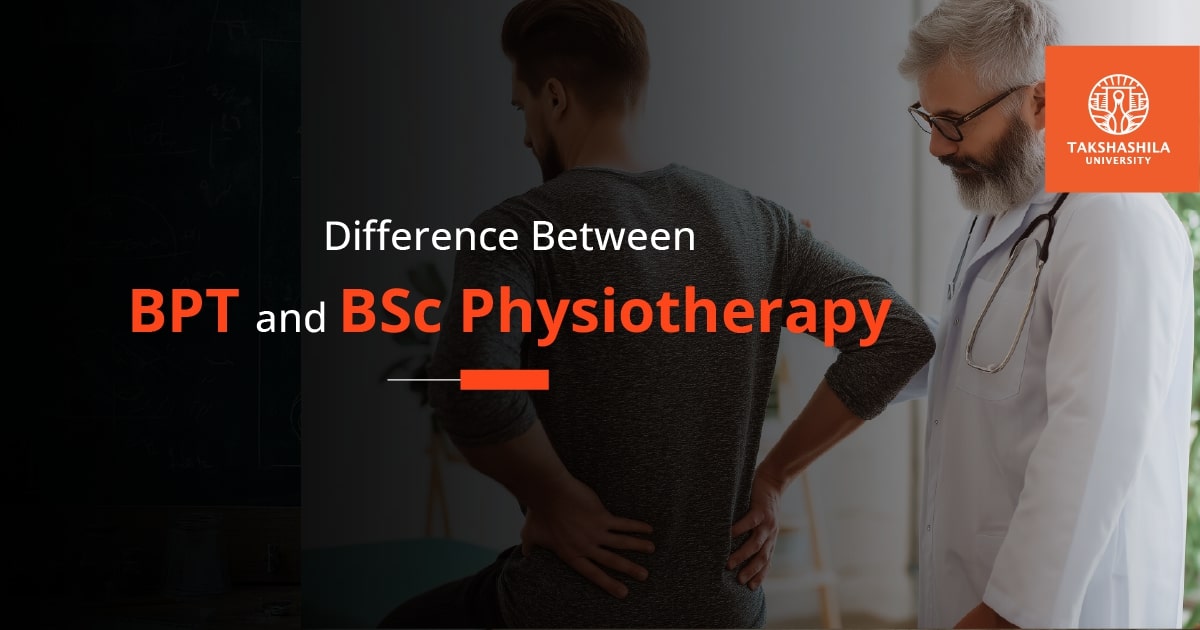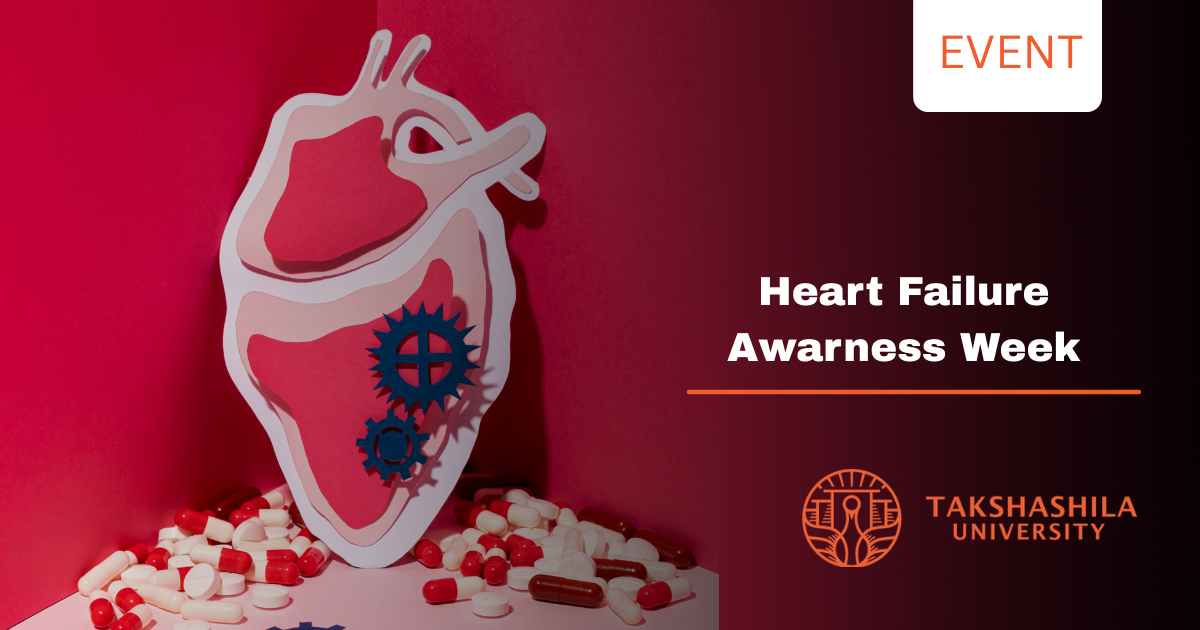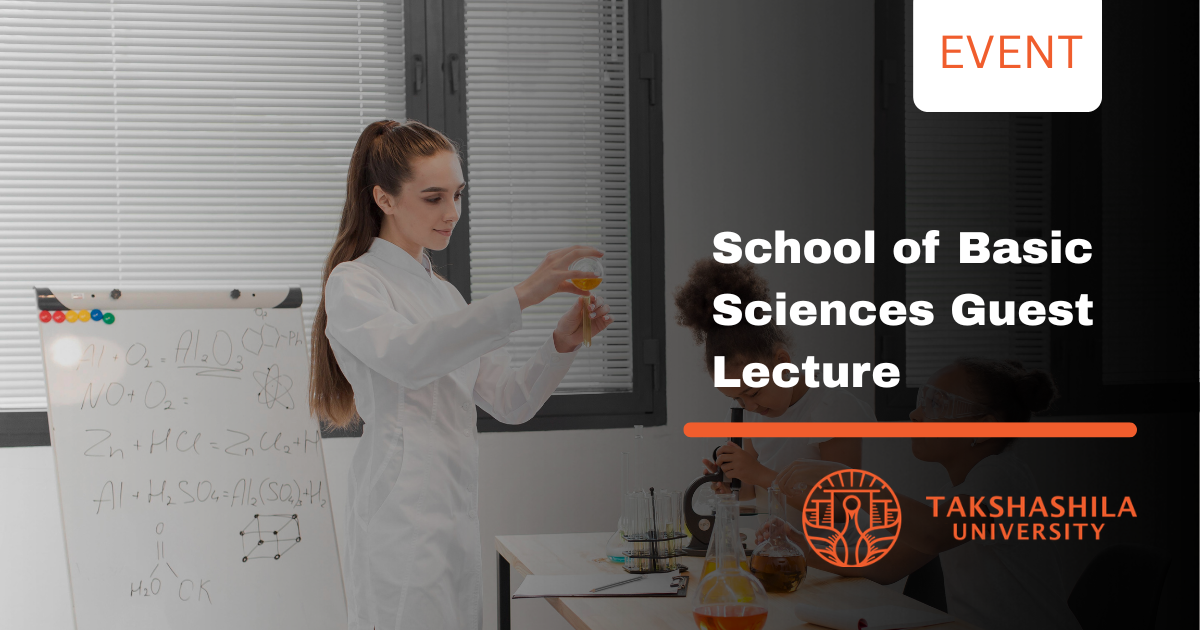Summary
BPT and BSc Physiotherapy – A major contributor to better quality of life is muscle, joint and bone health. This has increased the demand for physiotherapists around the world, leading to a rise in aspiring physiotherapists. The question then becomes, “Which is better: a Bachelor in Physiotherapy (BPT) or a Bachelor of Science in Physiotherapy (BSc. Physiotherapy)?” This blog aims to answer that question.

Introduction
Living longer and healthier lives has become a more prominent priority in modern society. Unlike previous generations, the younger generation prefers a disease-free and healthy lifestyle.
The physical health and strength of the muscles, bones, and joints of the human body are a major contributor to a higher quality of life—this is where physiotherapy comes in. Physiotherapy adds value to an individual’s overall health and well-being through targeted exercises aimed at promoting longevity and the treatment of physical injuries or disabilities.
Physiotherapists focus on treating and preventing physical impairments, disabilities, and movement disorders. This requires an expert with in-depth knowledge of many aspects of Physiotherapy to recognise, assess and diagnose a patient’s physical function and suggest therapy accordingly.
Takshashila University – Currently, there are two types of courses available for Physiotherapy- Bachelor of Physiotherapy (BPT) and Bachelor of Science in Physiotherapy (B.Sc Physiotherapy). Let us explore their key differences in order to help you make the right decision for your future career in the industry.
Overview of Bachelor of Physiotherapy (BPT)
Bachelor of Physiotherapy or BPT is an advanced 4-year program that teaches the science of movement and how to use it to enhance the daily functions of life. The course is followed by a 6-month mandatory clinical practice, after which the student is awarded the degree.
Graduates of BPT can specialise in different areas like sports physiotherapy, geriatric physiotherapy, orthopaedic physiotherapy, and paediatric physiotherapy, to name a few.
The main goal of the BPT program is to teach pupils how to properly diagnose and treat a patient’s physical ailments. Students acquire a thorough knowledge of human anatomy and its functions. These aspiring physiotherapists also train to carry out different types of manual treatments and equipment-based treatments to alleviate various types of pain and muscle swelling.
To enrol in a BPT program, you need to have cleared Class 12 in the stream that includes Physics, Chemistry, and Biology as your main subjects. Aspiring students must score a minimum of 50% in their overall grades or an equivalent grade in order to study BPT.
Overview of BSc. Physiotherapy
The Bachelor of Science in Physiotherapy is a 3-year graduation course that is similar to BPT but approaches physiotherapy from a more academic perspective. Students who enrol in this course can form a strong foundation for research in the field of physiotherapy. This is more of a general course in Physiotherapy and does not offer any specialisation like those after graduating from BPT.
Students under this program receive training in various physiotherapy exercises and treatments but can only practise them under the supervision of a doctor or an advanced medical professional.
The criterion for enrolling for a B.Sc Physiotherapy course is the same as that of BPT. You are required to clear Class 12 in the Science stream that includes Physics, Chemistry, and Biology as your main subjects with an average score of 50%.
Educational Structure
Features | Bachelor of Physiotherapy(BPT) | Bachelor of Science in Physiotherapy (B.Sc Physiotherapy) |
| Course Duration | 4 years + 6 months internship | 3yrs + (60-120)hrs internship |
Subjects Covered | AnatomyBiochemistryPsychologyPhysiologyElectrotherapyPathologyExercise TherapyPharmacologyGeneral SurgeryAllied TherapiesNeurology and NeurosurgeryNeuro-physiotherapyCommunity-Based RehabilitationCommunity Medicine | AnatomyPhysiologyBiochemistrySociologyPathology & MicrobiologyPharmacologyBiomechanicsPsychology |
| Practical Training | Therapeutic exercisesElectrotherapyManual therapyRehabilitation techniquesClinical Training +Specialisation | Therapeutic exercisesElectrotherapyManual therapyRehabilitation techniquesResearch Elements and Theoretical Orientation |
Career Opportunities
There are ample career options for aspiring physiotherapists who have chosen either BPT or BSc Physiotherapy programs. A common area where both types of graduates can work is as a Physiotherapist in hospitals.
A BPT graduate has the advantage of becoming a senior practitioner in these facilities, but a graduate of BSc. Physiotherapy can only be performed in a more assistive role. Here are some major roles that each graduate can take on:
Job Prospects
| Bachelor of Physiotherapy(BPT) | Bachelor of Science in Physiotherapy (B.Sc Physiotherapy) |
| Physiotherapists in hospitalsPrivate clinics Sports organisations Fitness centresRehabilitation facilitiesSpecialisation clinics: Pediatrics, Geriatrics, Neurology, Orthopedics, Sports Physiotherapy etc. | Physiotherapists in hospitalsResearch and Education—Jobs in research institutions, universities, teaching hospitals.Advanced Studies—Opportunities for further studies. |
From a career perspective, BPT clearly has an advantage over BSc Physiotherapy. If research and advanced studies are not your goal, it is best to choose BPT. Taking BPT doesn’t limit you from practising alone. BPT is also internationally recognised and is considered credible for pursuing higher studies like an MSc. Physiotherapy or obtaining a Masters in Physiotherapy(MPT).
Choosing the Right Course for You
Factors to Consider
Personal Interests and Career Goals: Assess your career aspirations and how both courses correspond to them. List out the pros and cons of each course with respect to your aspiration.
Preferred Learning Style: Are you a person who learns through practice or prefers to watch, read and understand the way procedures are done? Consider whether you prefer practical hands-on training (BPT) or theoretical study (BSc Physiotherapy).
Potential for Further Specialization and Higher Education: Think about long-term goals and opportunities for advanced studies. Consider all the possibilities for both courses. Spend some time to figure out whether you are a person with an entrepreneurial mindset who would like to have your own independent practice or whether you prefer to work under an institution as a salaried physiotherapist.
Takshashila University: The Top Institute for BPT in Tamil Nadu
Tamil Nadu is famous for affordable education. Students from different parts of India flock to the state to pursue competent courses in Tamil Nadu. Takshashila University offers an advanced course in BPT spanning four and a half years.
The BPT Program is divided into 8 semesters and 6 months of “Compulsory Rotatory Internship” in various departments.
Established in 2023, our School of Physiotherapy has since grown to accommodate aspiring students from all over Tamil Nadu. We offer coveted placements for BPT graduates in hospitals, clinics, sports centres, gymnasiums, and more. We ensure that each aspiring student who walks into our BPT programs finds their footing in a lucrative career as a physiotherapist.
Our campus offers the following top-end facilities that are aimed at providing students with the best resources to succeed:
1/ The Physiotherapy Lab: We have a state-of-the-art physiotherapy lab with equipment that enables students to learn and practise various techniques, including manual therapy, electrotherapy, hydrotherapy, and exercise therapy.
2/ Anatomy Lab: In this lab, students can engage in detailed study and exploration of the human body. It also supports research initiatives, fostering an environment of scientific inquiry and discovery.
3/ Library and Computer Lab: The college library contains an impressive collection of books, scientific magazines, and journals. The computer lab houses high-speed Wi-Fi with access to students and faculty carrying out various academic activities.
4/ Transportation Facilities: The university provides a dedicated fleet of buses that cover various routes within the city and surrounding areas. The campus is accessible by local public transportation, including buses and taxis, making it well-connected and easily reachable.
Takeaway
- Physiotherapy adds valuable contributions to a person’s overall health and well-being. Since today’s citizens are more informed and suffering from rising physical health setbacks, there is a huge demand for physiotherapists amongst the urban population.
- There are two types of courses available for Physiotherapy- Bachelor of Physiotherapy (BPT) and Bachelor of Science in Physiotherapy (B.Sc Physiotherapy).
- BPT is an advanced course with a duration of 4 years that offers clinical practices to help patients recover and improve movement and physical disabilities.
- BSc Physiotherapy is a 3-year graduation course that approaches physiotherapy from an academic and research perspective.
- Being one of the top colleges in Tamil Nadu for BPT, Takshashila University offers an advanced course in BPT at an affordable fee.
- A career in Physiotherapy is a promising one, but it is equally important to research the possibilities, affordability, and opportunities before settling down for the course and college of your choice.
- You must have a clear vision of your future and calculate the possible positive and negative outcomes by the time you graduate from college.
- While choosing a career in physiotherapy, you must bear in mind that a physiotherapist is out there to make the lives of the patients better.
FAQs
1/ Will I get a career placement after the BPT course at Takshashila University?
Yes, once you complete your course, Takshashila University offers campus placements to help you jumpstart your career.
2/ Which one is better? BPT or BSc Physiotherapy?
For an immediate career, BPT is the better choice.
3/ What is the salary after BPT?
A BPT graduate can earn between INR 25k to 40k per month. The rates can vary depending on specialisation and individual expertise.
4/ Which is the most affordable state in which to study physiotherapy?
One of the most affordable states in India to study physiotherapy is Tamil Nadu.
5/ Who earns more, MBBS or BPT?
Generally, MBBS doctors tend to have higher salaries and greater recognition compared to physiotherapists. However, this can differ depending on an individual’s expertise and experience.






